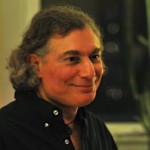 This August, the Oregon Association of Family and Consumer Sciences (ORFACS) and OSU partnered to offer a two-day workshop on how to develop proficiency-based assessment in the Family and Consumer Science (FACS) classroom.
This August, the Oregon Association of Family and Consumer Sciences (ORFACS) and OSU partnered to offer a two-day workshop on how to develop proficiency-based assessment in the Family and Consumer Science (FACS) classroom.
Twenty nine teachers from across the state worked and collaborated to create coursework and rubrics that assesses students’ proficiency. Trisha Richmond from South Medford High School, a pilot school in proficiency-based assessment, shared her work from her FACS classroom and inspired many teachers to focus on how to teach to standards and proficiency. Teachers took course syllabuses and aligned them with FACS national standards and Essential skills, then spent an afternoon with other teachers writing rubrics that will be used to assess proficiency in the standards.
A follow-up workshop will be held in Downtown Portland on Statewide in-service day Oct 11th, 2013 and anyone is welcome to attend and learn what other teachers are doing for proficiency-based education.
For more information contact OSU’s College of Education instructor Sara Wright at wrighsar@onid.orst.edu.














 Rick Wagoner is an Assistant Professor in the Higher Education and Organizational Change Division of the Graduate School of Education and Information Studies at the University of California, Los Angeles (UCLA). His research and scholarship centers on community colleges and addresses them from multiple perspectives including theoretical and scholarly, practitioner oriented, and policy. He is particularly concerned with faculty work and professional identity, colleges as organizations, and the transfer function from the perspectives of individual students, institutions, and state-level policies. Professor Wagoner’s interest in community colleges is deeply grounded in his own experience as he graduated with an AS degree from the College of Eastern Utah in Price, Utah and has worked as an administrator and adjunct professor at Pima Community College in Tucson, Arizona.
Rick Wagoner is an Assistant Professor in the Higher Education and Organizational Change Division of the Graduate School of Education and Information Studies at the University of California, Los Angeles (UCLA). His research and scholarship centers on community colleges and addresses them from multiple perspectives including theoretical and scholarly, practitioner oriented, and policy. He is particularly concerned with faculty work and professional identity, colleges as organizations, and the transfer function from the perspectives of individual students, institutions, and state-level policies. Professor Wagoner’s interest in community colleges is deeply grounded in his own experience as he graduated with an AS degree from the College of Eastern Utah in Price, Utah and has worked as an administrator and adjunct professor at Pima Community College in Tucson, Arizona.